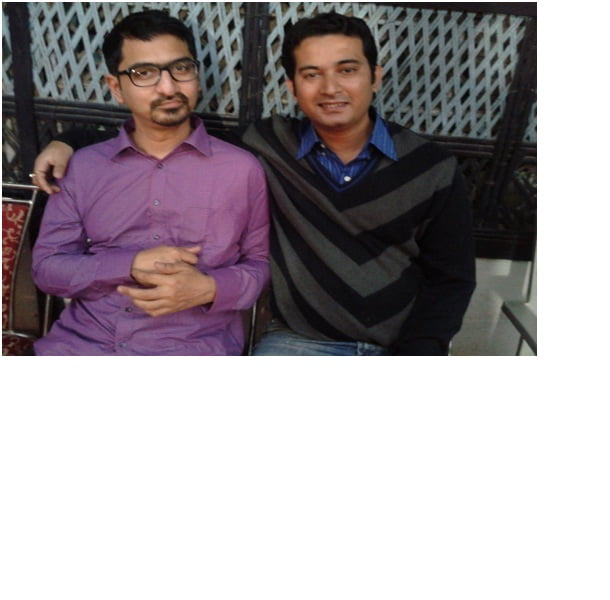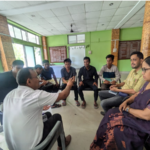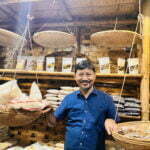A meeting with Ankur Barua, Associate Professor, Divinity, Cambridge University
Arunav Barua
It was a chilly winter morning a few days back that I received the call…
I was informed that there was a family get-together to meet and share some moments of Bonhomie with Mimon Da. Mimon Da, better known as Ankur Barua, needs no introduction. I am sure, you are aware of the only Indian Assamese Professor teaching in Cambridge University. Yes, the same Mimon Da was the person I would be meeting that evening. He had come to Guwahati for a short holiday break and had made it a point to meet everyone he possibly could, everyone he had shared a childhood with, everyone who had somehow touched his life.
The last time I had met him was years ago, almost a decade, 2006 to be precise, in Coffee Day, Connaught Place, Delhi. That had been a short meeting which did not last long but I remembered even then he had asked me a question I had pondered upon for a long time. The conversation had gone thus:
“ Do you believe in an afterlife?” I had proceeded to ask him.
“Do you doubt it?” He had gone on to say…
“Well… I ask you because I don’t know and you seem to be the best person to ask.”
“Imagine Rimon, imagine that you die, as you must one day and you face a chair with a person sitting on it.”
“Alright!?”
“If the person asks you about your life, would you have all the answers ready? If, every detail of your life was recounted and put before you, would you be able to answer them, those questions?”
“I don’t know, I never thought about it.”
“Think then…”
That question had remained with me for a long time and every now and then, every action I took, every decision I made would make me wonder, upon that question. About the answer I would have to give…
At that point in time, he was working in a publishing firm, earning his living and also continuing his studies, which were a whole range of subjects. It was a simple matter of simple living and high thinking, something you don’t see around anymore.
Now it was December in Guwahati and Ankur Da was there. I could ask him questions, I could talk about things seldom talked about with others. As I entered the gate in Kalapahar, I was welcomed in to a covered courtyard where I saw him sitting. He had changed, gained weight, not too much of it but better than the last time I had seen him when he was as thin as thinness goes. I smiled naturally and proceeded to sit down with him on the chair adjacent.
“How have you been Da?”
“I am alright. You?”
“Me too, me too.”
After we had exchanged some pleasantries and talked about what had been keeping us busy, we maintained silence for a few moments. Then he asked me, “What do you do other than teaching?”
“I write Mimon Da; poems, articles and am working on a book of fiction.”
“That’s nice; do you write because you have to, or because you want to?”
“Because I want to…”
“You know, you can write something on Majuli, since you have been there. You could start your plot around three hundred years earlier and bring the story to the present.”
“You mean like a historical novel?”
“Yes, something like that.”
“It could be a growing up story, couldn’t it Mimon Da?”
“I don’t know, it could be a growing down story too…”
That struck me and I exclaimed “wow”, for I could see that it had been a ‘growing down’ from the purity of the past to the changes in the present. He said something so deep with such nonchalance!
We then went on to have a chat on cognition and the way in which our cognitive processes decline with age. We talked about the simple things we often took for granted which with the advent of a few years became tasks. Remembering names, dates, etc.
I had mentioned that he had a simple job as a proof reader in a publishing firm, but had kept on studying. We don’t see that much do we? We need all the posh jobs, the ones going around, and in the process, we see that all we have time for are our jobs and the human mind stops learning except at work. We stop learning, studying, reading. He had shown me that it was not what you did as long as you do it to the best of your capacity and keep learning.
He did just that.
I wondered what it was that made him say that he wanted me to write on Majuli, and I realized that it was his love for Assam which probably made him say so. We so often feel that we have a culture which rivals even the best in the world but we don’t have a voice which would give utterance to this rich heritage. I realized that he felt the same.
Mimon Da; Ankur Barua, had topped the state in his higher secondary exams and had topped the University breaking a hundred years record in Physics from St. Stephen’s Delhi when he had passed his BSc in 1998. Then inexplicably, he had chosen theology or philosophy.
arunav_barua@yahoo.com







